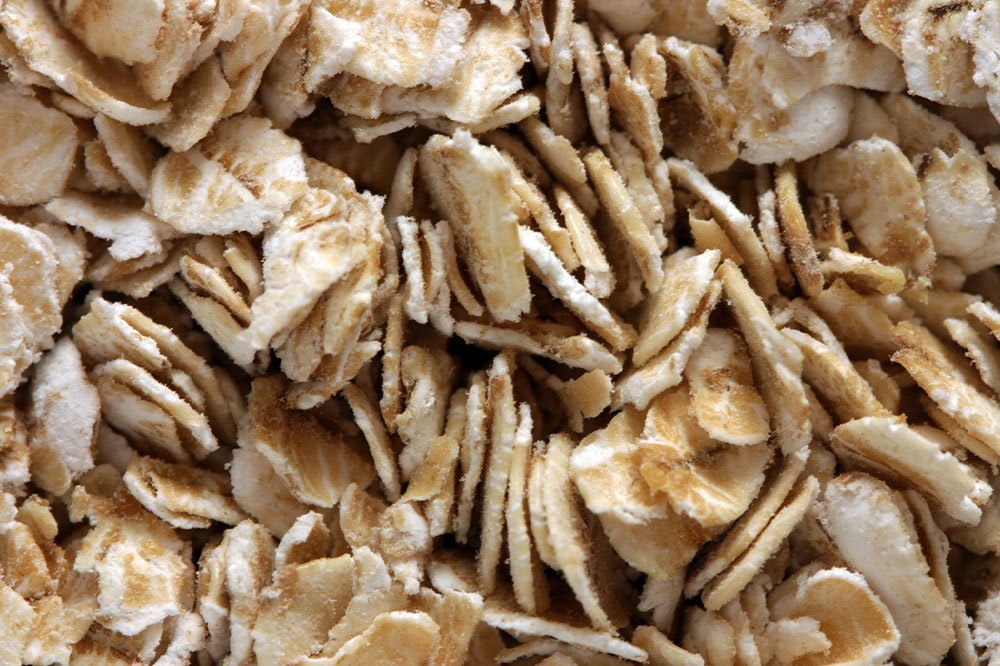10 snack and meal ideas that help lower cholesterol levels

Cholesterol is a wax-like substance that is naturally present in every body cell. It supports cell-building function, is necessary to produce certain vitamins, and regulates hormones linked to various body functions. However, excess blood cholesterol increases the risk of cardiovascular disease, stroke, and high blood pressure. Changing one’s daily nutritional intake is one of the ways to control high cholesterol; this can be done by introducing the following foods and snacks to the meal plan.
Whole grains
Oatmeal is a rich and nourishing breakfast choice that can help lower cholesterol levels with regular consumption. The grain is rich in soluble fibers that naturally help reduce the absorption of bad cholesterol into the blood circulation. This lowers the amount of low-density lipoprotein (LDL) in the bloodstream and prevents the arteries from clogging. It helps lower the risk of cardiovascular diseases, high blood pressure, and stroke. Oatmeal is also one of the simplest snacks to make, and it can be topped off with fresh fruits and your favorite condiments.
Apples
Daily eating a few apple slices can considerably decrease low-density lipoprotein. Apples contain a soluble fiber called pectin that helps foods bind and increase stool density to improve bowel movement. This type of soluble fiber also lowers and controls the amount of fat released into the bloodstream. Essentially, these functions ensure the LDL levels don’t spike due to the over-absorption of fats from foods and beverages consumed.
Fatty fish
Omega-3 fatty acids play a critical role in lowering triglyceride levels in the bloodstream. This is a type of fat that triggers an increase in cholesterol. So naturally, lower levels of triglycerides manage to keep cholesterol levels in check. At the same time, omega-3s boost the production of healthy fats called high-density lipoprotein (HDL). HDL absorbs excess cholesterol from the bloodstream and carries it back to the liver to be processed out. Salmon, tuna, mackerel, herring, and trout are the richest sources of healthy omega 3s to be included for nutrition.
Avocados
Avocados are one of the most potent superfoods that naturally help keep cholesterol levels in check. Firstly, avocados are rich in monosaturated fatty acids that lower plasma, triglyceride, and low-density lipoprotein in the bloodstream. Simply put, just eating a few fresh slices of avocados a couple of times every week can bring the total LDL levels below permissible limits. The food item is also rich in soluble fibers that help absorb these excess fats from circulation to keep cholesterol levels in check. Additionally, avocados are a natural source of omega-3 fatty acids that help keep cholesterol levels in check.
Whole eggs
Eggs are a rich source of healthy omega-3s that help lower LDL and also promote good fats like HDL in the bloodstream to keep cholesterol levels in check. Eggs can be boiled, poached, or baked, added to salads, or eaten plain as a snack. They are safe for daily consumption to boost protein intake and prevent a spike in cholesterol levels.
Nuts
Walnuts and almonds are great snacks to munch on that help maintain healthy cholesterol levels. Nuts are an excellent source of monosaturated fats, which help substitute the unhealthy saturated and trans fats that are a staple in processed foods. Both walnuts and almonds are rich in cholesterol-lowering fats. An assorted bowl of nuts also contains nutrients that keep blood pressure levels in check and counter inflammation.
Assorted vegetables
Eggplants, carrots, and cauliflower actually top the list of veggies to include for better cholesterol management. For example, one can make roasted eggplant, a popular dish that goes really well with homemade condiments to munch on as a snack. Dark purple vegetables have essential soluble fibers that help lower the total cholesterol content in the body. Carrots are loaded with antioxidants, minerals, vitamins, and soluble fibers that also help manage high cholesterol and cruciferous vegetables like cauliflower provides essential fibers that help lower the bad fats in circulation. It can also serve as a healthy substitute for starch.
Legumes
Legumes, including beans, peas, and different varieties of lentils, can provide a viable substitute for refined grains and processed foods that form part of most daily meal plans. Legumes are naturally rich in fiber that helps remove low-density lipoprotein from the bloodstream and pass it along to the liver, where all the fat content is removed for evacuation. Legumes are also excellent sources of plant-based proteins and essential minerals that help boost body function. Chickpeas, black beans, green beans, lima beans, kidney beans, navy beans, black-eyed peas, and green peas are all common legumes used to make healthy snacks.
Fortified snacks
Some cereals, fruit juice, and dairy products can also help keep cholesterol levels in check since these snacks are fortified with plant sterols. If regular, healthy foods and beverages are not enough to keep cholesterol in check, nutritionists will suggest a couple of these fortified foods. Different fortified foods and beverages have various vitamins and minerals that supplement better digestion, absorption of nutrition, and lower accumulation of fats in the bloodstream.
Fermented dairy products
Yogurt is a highly recommended snack that can help lower cholesterol levels in the body. Studies show that fermented foods and beverages actually help lower low-density lipoprotein in the bloodstream. Simply adding a cup of yogurt to daily meals also lowers the risk of heart disease, high blood pressure, and even diabetes triggered due to imbalance in cholesterol levels.
Nutritionists also suggest a number of lifestyle changes to support these changes in daily nutrition to better manage cholesterol levels. A healthy exercise routine and eliminating bad habits that affect body functions will improve overall outlook by lowering the risk of diseases linked to high cholesterol.



